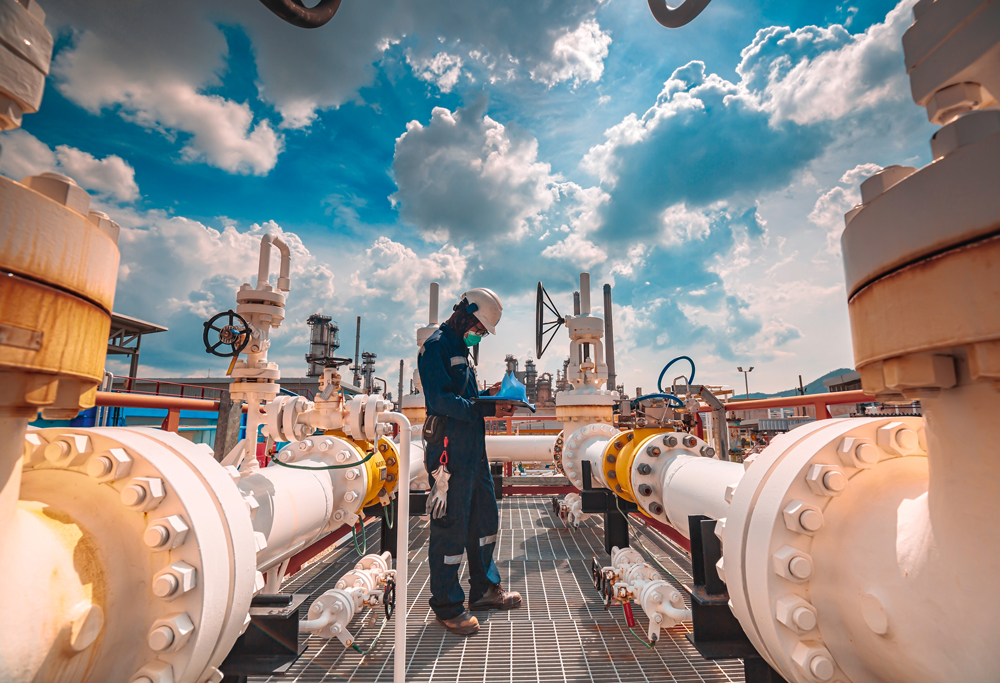Pipeline Safety Cases Plunge as Trump Slows Enforcement
(P&GJ) — Federal enforcement actions aimed at safeguarding U.S. oil and gas pipelines have dropped to historic lows during the first months of Donald Trump’s second term in office, according to Yahoo Finance.
The Pipeline and Hazardous Materials Safety Administration (PHMSA) launched only 40 enforcement cases between January 20 and the end of June—a figure representing the slowest start to pipeline safety oversight for any administration in at least two decades.
The dramatic decline marks a 68% decrease compared to the same period in Trump’s first term, Yahoo Finance reports, reflecting the White House’s broader push to cut regulatory hurdles for the fossil fuel industry. The administration’s emphasis on "energy dominance" and rolling back environmental restrictions is paired with a reduction in government oversight, including significant staff departures at PHMSA earlier this year.
LISTEN NOW: Cybersecurity: Advancing Security Measures to Protect Vital Infrastructure
PHMSA says the slowdown is partly due to internal changes in how the agency assesses penalties and handles case documentation, Yahoo Finance reported.
Despite this, the agency has initiated just five new cases since early June, well below the historical monthly average of about 17. PHMSA typically intervenes when pipeline operators violate safety rules or when corrective actions are needed to prevent leaks, fires, or explosions.
The regulatory pause has sparked criticism from safety advocates and community leaders. In Upper Makefield Township, Pennsylvania, local officials are urging federal regulators to take more aggressive action after a January jet-fuel pipeline leak contaminated private water wells. The operator, Energy Transfer LP, has not fully remediated the spill, prompting concerns that the pipeline should have been shut down entirely.
PHMSA maintains that it has taken decisive corrective steps but argues that legally, pipelines cannot be shut down without clear evidence of an ongoing threat to life, property, or the environment. “We have seen no evidence that suggests the Twin Oaks pipeline is still leaking or that there is cause for us to shut down the pipeline,” Wong told Yahoo Finance.
Pipeline safety advocates worry the slowdown in enforcement may lead to more frequent and severe pipeline failures. Bill Caram, executive director of the Pipeline Safety Trust, warned that without active oversight, companies may not feel pressure to prioritize safety.
Related News
Related News

- Enbridge Plans 86-Mile Pipeline Expansion, Bringing 850 Workers to Northern B.C.
- Intensity, Rainbow Energy to Build 344-Mile Gas Pipeline Across North Dakota
- U.S. Moves to Block Enterprise Products’ Exports to China Over Security Risk
- Strike Pioneers First-of-Its-Kind Pipe-in-Pipe Installation on Gulf Coast with Enbridge
- 208-Mile Mississippi-to-Alabama Gas Pipeline Moves Into FERC Review
- U.S. Pipeline Expansion to Add 99 Bcf/d, Mostly for LNG Export, Report Finds
- A Systematic Approach To Ensuring Pipeline Integrity
- 275-Mile Texas-to-Oklahoma Gas Pipeline Enters Open Season
- LNG Canada Start-Up Fails to Lift Gas Prices Amid Supply Glut
- Strike Pioneers First-of-Its-Kind Pipe-in-Pipe Installation on Gulf Coast with Enbridge





Comments